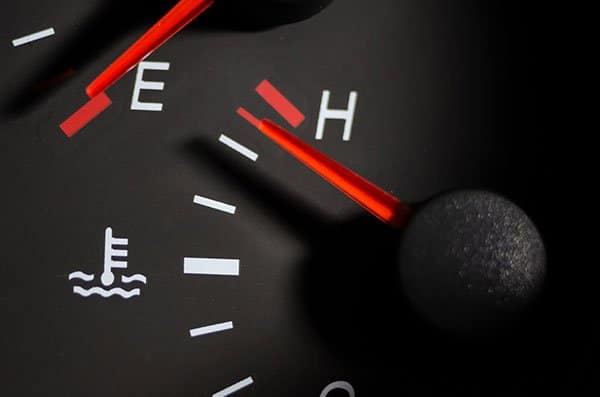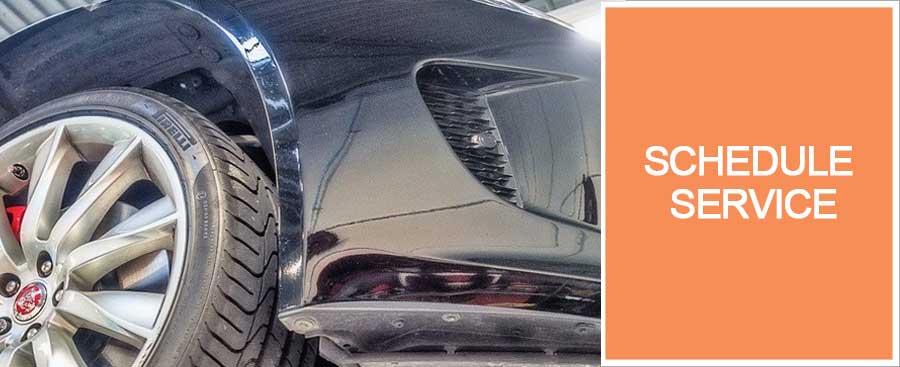Long drives on a hot day will test a vehicle, and if your Jaguar has a problem, you may find yourself with an overheating engine. Through Jaguars have great dedicated cooling systems, there are some problems that can interfere with or overpower them. Also, engines that are too hot can also develop other kinds of damage that may put them out of commission fairly quickly.
Here is what you need to know about Jaguar overheating, including why vehicles overheat and what you should do about it.
Signs That Your Jaguar has Overheated
First things first, you probably want to know the signs that your Jaguar has overheated so that you can catch the issue before it stops running. The signs that your vehicle has reached a temperature it can’t handle include:
- Steam from the hood: Don’t be fooled by the thick, white look of this steam. It isn’t smoke, it is just moisture evaporated off the too-hot engine.
- Temperature range: The dashboard of your Jaguar has an engine temperature gauge and warning light. The gauge may drift to “H”, for high, to indicate that there is a problem. If it gets worse then the temperature warning light should come on.
- Smells: When the engine is overheated it may burn off or evaporate liquids and this may make unusual smells. If the engine has affected the coolant then it may smell sweet, while engine oil may smell burnt instead. Again, this does not necessarily mean the engine is on fire.
Why Do Engines Overheat?
There are many different engines problems that may contribute to too high temperatures in your Jaguar. Some are driving habits that you can control and others are potential problems with the vehicle that you can get fixed to avoid temperature problems. Here are several problems that may contribute to high temperatures in your engine:
- Coolant issues: Most obviously, problems with the coolant system or low coolant levels can contribute to or outright cause an overheated engine.
- Driving issues: If you have an engine problem, braking and accelerating frequently and hard can increase the temperature in your engine and make it worse. To avoid this, you can try to accelerate slowly and brake gently and only as needed.
- High outdoor temperatures: Of course, if the temperature is extremely hot out, this will contribute to engine problems.
What to Do if Your Engine is Overheating
You’ve noticed that your temperature gauge is rising or you can see steam pouring out of your engine’s hood, what should you do? First, and foremost – be safe and do not open up the hood when it is hot or even warm. Start planning because while there are things you can do to get a little further with this problem, you can’t resolve it while you’re still driving. You may want to head home or to a mechanic’s shop. In the meantime, here is what you can do:
- Windows and air conditioner: The air conditioner dumps heat out of the cabin into the engine. Turning off the air conditioner will prevent this and reduce stress on your vehicle. Then opening the windows can increase airflow and help relieve some of the heat in the engine too.
- Turn on the heater: Your Jaguar uses the heat generated by the engine to heat up the cabin. So, if you turn on the heat, then the engine will cool off somewhat. You’ll feel in it the driver’s seat, but if you absolutely need to keep driving, this is your best bet to get a few extra miles.
- Pull over: Unfortunately, you’ve exhausted your other options at this point and need to pull over. Try to get under shade if it’s hot out and there is some immediately available. If you got to this point, it is likely you’ll need roadside assistance.
- Wait 30 minutes: The engine is too hot to touch for at least 30 minutes after you’re forced to pull over. Only then can you attempt the other things on this list and only with gloves.
- Add coolant: Coolant changes pressure in temperature dramatically so you need to be careful opening the coolant cap. Use a towel and release slowly. Then add coolant until the tank is full. After the coolant is in, you should be able to turn on the engine and see if it cools off enough to drive.
How to Prevent Engine Overheating Problems
You can prevent engine overheating problems if you address coolant and other issues before you set out on a hot day. Make sure your car can beat the heat. Bring it in to AutoScope today.


